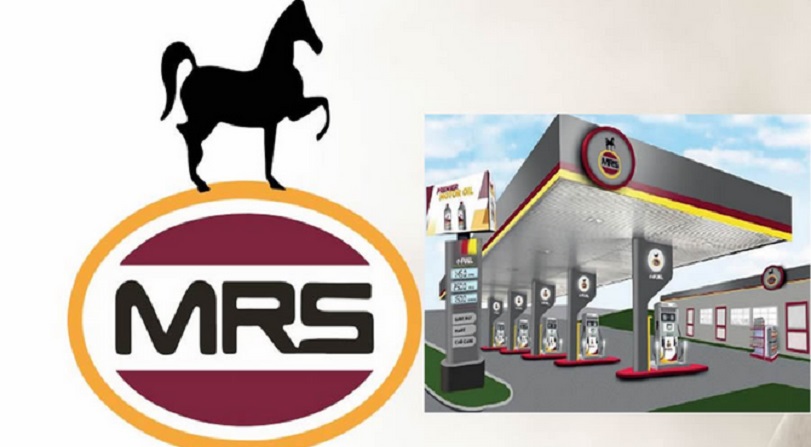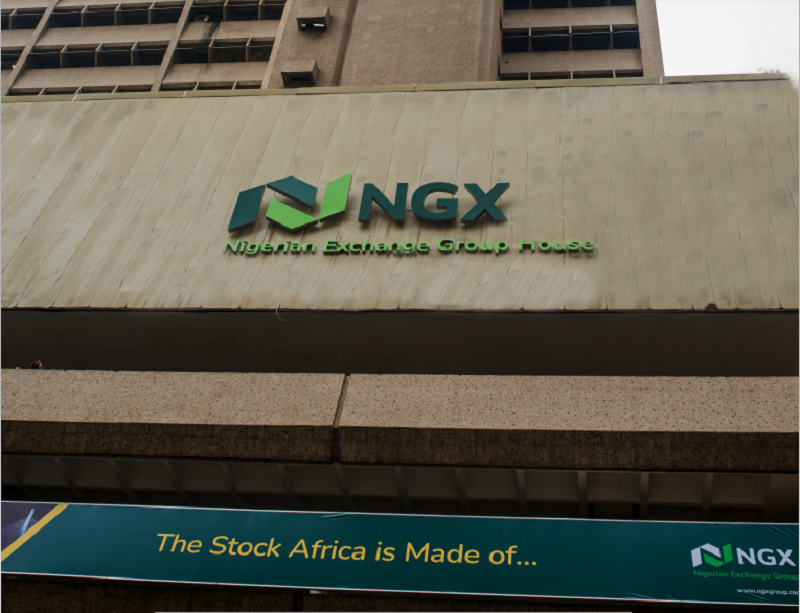Economy
Nigerians Laud Dangote-MRS Petrol Price Slash to N935 Per Litre

By Aduragbemi Omiyale
Many Nigerians have continued to applaud the partnership between the Dangote Refinery and MRS Oil Nigeria that led to the slashing of the price of premium motor spirit (PMS), otherwise known as petrol, to N935 per litre.
The two energy firms recently sealed a deal for the sale of petrol from Dangote Refinery in Lagos at the retail stations of MRS Oil across the nation.
“Petrol is now being sold at N935 at MRS Filling Stations nationwide. If you find any station not following this price, please report it. Call 08009447853 or email: NG*********************@*****MG.COM,” MRS Oil said in a statement.
“We call on all petrol station owners to join MRS Oil Nigeria Plc in improving the supply chain of our beloved country, ensuring product quality and availability in every corner of Nigeria for the benefit of all Nigerians,” it added.
Business Post reports that MRS Oil struck this deal with Dangote Refinery after the crude oil refiner brought down its ex-depot price from N970 to N899.50 per litre.
Checks showed that the new price had been implemented at all MRS Oil retail outlets nationwide.
In Lagos, commuters were seen queuing at MRS filling stations to purchase petrol. Many expressed their gratitude to Dangote Petroleum Refinery and MRS Oil and Gas, urging other marketers to support the indigenous refinery rather than import off-spec products into the country.
Mrs Ibukun Phillips, a commuter at the MRS station at Alapere on the Lagos Ibadan Expressway, could not hide her joy as her husband filled up their car.
“I am very happy today. This is a victory for Nigeria,” she said. “The price reduction is the best gift of the season. But beyond just the reduction, we are buying standard, eco-friendly petrol at a lower rate.
“My husband and I have decided we will only be using MRS from now on because we are confident in the quality of the product and supporting the economy,” she stated.
A commercial bus driver, Mr Adio Ajibade, described the price reduction as a great relief, especially during the festive season, saying, “The reduction is a great relief. It will reduce transportation costs and benefit Nigerians. God will continue to bless Aliko Dangote.”
A public affairs analyst and university lecturer, Dr Tunde Akanni, said the collaboration between Dangote Petroleum Refinery and MRS Oil represents a significant step towards improving the affordability, quality, and sustainability of petroleum products in Nigeria.
According to Dr Akanni, “This move will not only help ease the financial burden on Nigerians but also promote a more environmentally conscious approach to fuel consumption, benefitting both the economy and public health in the long term.”
Economy
NASD OTC Exchange Sustains Positive Momentum with 1.41% Rise

By Adedapo Adesanya
The NASD Over-the-Counter (OTC) Securities Exchange remained in the positive territory on Monday after it closed higher by 1.41 per cent at the close of business.
During the session, the NASD Unlisted Security Index (NSI) added 57.66 points to close at 4,141.53 points compared with last Friday’s 4,083.87 points, and the market capitalisation added N44.50 billion to settle at N2.477 trillion versus the preceding session’s N2.433 trillion.
Yesterday, the volume of securities went down by 60.7 per cent to 1.8 million units from 4.5 million units, the value of securities decreased by 79.3 per cent to N17.1 million from N82.5 million, and the number of deals dropped 38.6 per cent to finish at 27 deals compared to the preceding session’s 44 deals.
Closing the day as the most traded stock by value on a year-to-date basis was with Central Securities Clearing System (CSCS) Plc with 35.1 million units exchanged for N2.1 billion, trailed by Okitipupa Plc with 6.3 million units traded for N1.1 billion, and Geo-Fluids Plc with the sale of 122.8 million units valued at N480.4 million.
On the flip side, the most traded stock by volume on a year-to-date basis was Resourcery Plc with 1.05 billion units sold for N408.7 million, followed by Geo-Fluids Plc with 122.8 million units valued at N480.4 million, and CSCS Plc with 35.1 million units worth N2.1 billion.
On the first trading day of the week, there were three price gainers and three price losers led by FrieslandCampina Wamco Nigeria Plc, which lost N1.46 to quote at N110.00 per share versus the previous N111.46 per share, Afriland Properties Plc tumbled by 14 Kobo to close at N18.74 per unit versus N18.88 per unit, and Industrial and General Insurance (IGI) depreciated by 5 Kobo to close at 45 Kobo per share versus 50 Kobo per share.
The price gainers were led by MRS Oil Plc, which added N10.00 to trade at N210.00 per unit versus N200.00 per unit, CSCS Plc appreciated by N6.88 to N77.00 per share from N70.12 per share, and First Trust Mortgage Bank Plc gained 16 Kobo to close at N1.75 per unit versus N1.59 per unit.
Economy
Nigerian Exchange Recovers 1.39% on Bargain-hunting

By Dipo Olowookere
The hunt for dividend-paying stocks rebounded the Nigerian Exchange (NGX) Limited by 1.39 per cent on Monday after a spate of sell-offs last week.
According to data, energy equities were the toast of investors yesterday, with the sector closing higher by 4.68 per cent when the closing gong was struck at 2:30 pm on the stock exchange.
Further, the industrial goods space appreciated by 2.49 per cent, the consumer goods index improved by 0.36 per cent, and the banking segment appreciated by 0.26 per cent, while the insurance counter lost 1.49 per cent to profit-taking.
As a result, the All-Share Index (ASI) gained 2,687.46 points to finish at 195,514.23 points compared with the 192,826.77 points it ended last Friday, and the market capitalisation grew by N1.725 trillion to N125.488 trillion from N123.763 trillion.
NGX Group, which announced a final dividend of N2 and a bonus share of 1-for-3 last Friday, was the best-performing equity on Monday after it gained 10.00 per cent to trade at N136.40.
In addition, Aradel Holdings appreciated by 9.99 per cent to N1,192.30, Union Homes REIT grew by 9.96 per cent to N76.15, Sovereign Trust Insurance advanced by 9.95 per cent to N2.43, and PZ Cussons rose 9.72 per cent to N79.00.
On the flip side, Custodian Investment ended as the worst-performing equity with a 10.00 per cent loss to settle at N61.20, McNichols shed 9.92 per cent to N7.63, Africa Prudential depleted by 9.75 per cent to N16.20, Chams crashed by 9.11 per cent to N4.09, and Neimeth depreciated by 8.23 per cent to N10.60.
The most active stock for the session was Fortis Global Insurance with 109.1 million units sold for N109.2 million, Japaul traded 54.7 million units valued at N218.9 million, UBA transacted 43.0 million units worth N2.1 billion, Access Holdings exchanged 30.7 million units for N799.4 million, and Oando sold 28.5 million units worth N1.3 billion.
In all, market participants bought and sold 789.9 million shares valued at N35.1 billion in 84,259 deals yesterday compared with the 823.8 million shares worth N34.8 million traded in 63,759 deals in the preceding session, indicating a decline in the trading volume by 4.16 per cent, and growth in the trading value and number of deals by 0.86 per cent, and 32.15 per cent apiece.
Economy
Naira Crashes to N1,378/$1 as FX Demand Outpaces Supply

By Adedapo Adesanya
The gradual fall of the Naira against the United States Dollar continued on Monday after it further lost N14.63 or 1.07 per cent to close at N1,378.02/$1 compared with the N1,363.39/$1 it was traded at last Friday at the Nigerian Autonomous Foreign Exchange Market (NAFEX). This was due to an insufficient supply of FX to meet the demand of customers at the currency market.
The Nigerian currency also depreciated against the Pound Sterling in the same market segment during the session by N9.65 to trade at N1,846.14/£1 compared with the previous trading day’s rate of N1,836.49/£1, and declined against the Euro by N3.76 to settle at N1,612.98/€1 versus the preceding session’s N1,609.22/€1.
In the same vein, the Nigerian Naira tumbled against the greenback in the black market yesterday by N5 to quote at N1,375/$1, in contrast to the previous value of N1,370/$1, as forex demand pressure gradually mounts.
The Central Bank of Nigeria (CBN) sold $200 million to boost the supply side and moderate demand pressures. For February, the CBN operated on both sides of the market, selling $225 million and purchasing $261.80 million. However, as FX demand continued to outpace available supply, pressure mounted further in the market.
Meanwhile, the research subsidiary of Coronation Merchant Bank said FX liquidity improved significantly last week. Total FX inflows into the official window rose to $1.07 billion from $648.20 million in the prior week.
Analysts maintain that the exchange rate is still trading within its projected N1,350 to N1,450 per Dollar band, dismissing panic concerns.
Meanwhile, the cryptocurrency market was bullish on Monday after macro shocks triggered repositioning across markets, and digital currencies benefited as some investors rotated back into risk.
After weeks of US military buildup and deadlocked nuclear diplomacy, the war with Iran increases the danger of a wider regional confrontation in a strategically vital economic corridor, adding to the risk gains for the market.
Ethereum (ETH) gained 5.5 per cent to trade at $2,050.07, Solana (SOL) appreciated by 5.2 per cent to $87.76, Bitcoin (BTC) added 4.9 per cent to sell for $69,322.35, Binance Coin (BNB) rose 3.2 per cent to $637.94, and Litecoin (LTC) expanded by 3.0 per cent to $52.39.
Further, Ripple (XRP) jumped 2.9 per cent to $1.40, Cardano (ADA) improved by 2.1 per cent to $0.2801, and Dogecoin (DOGE) increased by 1.9 per cent to $0.0946, while the US Dollar Tether (USDT) and the US Dollar Coin (USDC) remained unchanged at $1.00 apiece.
-

 Feature/OPED6 years ago
Feature/OPED6 years agoDavos was Different this year
-
Travel/Tourism10 years ago
Lagos Seals Western Lodge Hotel In Ikorodu
-

 Showbiz3 years ago
Showbiz3 years agoEstranged Lover Releases Videos of Empress Njamah Bathing
-

 Banking8 years ago
Banking8 years agoSort Codes of GTBank Branches in Nigeria
-

 Economy3 years ago
Economy3 years agoSubsidy Removal: CNG at N130 Per Litre Cheaper Than Petrol—IPMAN
-

 Banking3 years ago
Banking3 years agoSort Codes of UBA Branches in Nigeria
-

 Banking3 years ago
Banking3 years agoFirst Bank Announces Planned Downtime
-

 Sports3 years ago
Sports3 years agoHighest Paid Nigerian Footballer – How Much Do Nigerian Footballers Earn












